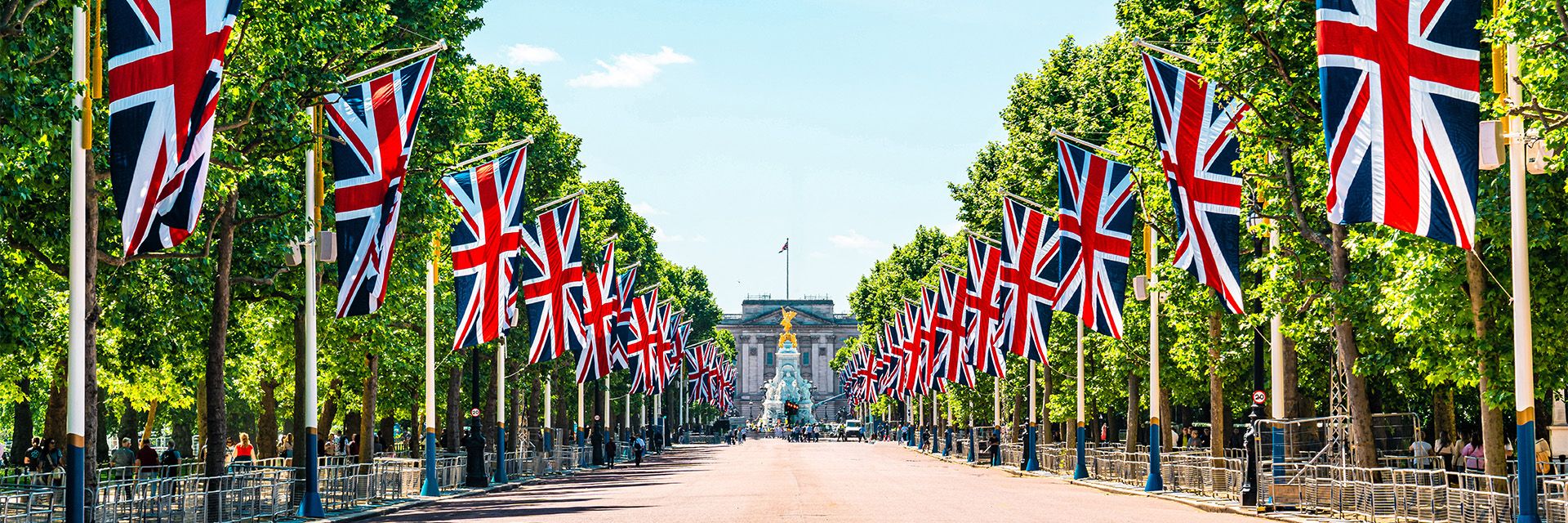
Inspired magazine
Featuring incredible insights and experiences of inspirational people from around the world, we explore some of the ultra-high net worth interests and passions that are thrilling and fascinating in equal measure.

03 July 2023
Article written by Jennie Bond, former royal correspondent
It’s impossible to quantify the true benefit and value of a monarchy. That said, anyone who has travelled extensively with the UK royal family, will have been astonished to witness the interest that they generate. People in India, or Australia or Iqaluit, would happily stand in the scorching heat or the shivering cold for hours to glimpse a diminutive figure in a bright hat, just to say they’ve seen the Queen.
Global recognition counts for a lot in soft power, as I demonstrated quickly during a recent debate about the future of the monarchy. It was a fiercely republican audience, and at the beginning, I was very much in the minority. It remained that way until I asked if anyone could name the president of Germany? They squirmed. The president of Ireland? Silence. I kept listing, but nobody could give me a single answer.
By contrast, no one – or at least very few people – would ever fail to recognise our King. Charles uses this global fame to convene tactical meetings that can help smooth out certain problems. He has the cachet to bring CEOs from all kinds of industries together, and to get them to sort things out.
In the UK, many people believe that royal family members are our ambassadors. They bring a huge amount of pleasure, but they also fly the flag for Britain, particularly on royal tours. The Foreign Office requests the location, and the royals head off to improve bilateral relations. After these trips, trade deals are signed, and connections made.
Despite the enduring appeal in some parts, there is no denying that a period of change is afoot. And recent months haven’t been plain sailing, with some uncomfortable headlines catching the eye.
Should they be worried? History would suggest not. Opinion polls come and go, and whenever there’s been a scandal or a dip in popularity, the UK royal family has always bounced back. And that’s because broadly, they unify people like no political party can.
In many ways, the system of monarchy gives the country stability. When the Queen was alive, she was seen as a constant, reassuring presence – part of the fabric of our national life. This continuity has carried through into the reign of King Charles, thanks to such a smooth transition of power.
The inevitable question is therefore – what’s next for the royal family? Well, they’re very aware of the optics in this cost-of-living crisis. King Charles is consciously making changes, wanting to reduce the number of working royals and possibly even turning some of their houses into national monuments, open to the public.
They are also aware that they need to adapt in order to remain relevant. We’re seeing that a lot from William and Catherine, and Queen Camilla. They are visibly engaging on important social issues including homelessness, mental health, diversity, poverty, domestic abuse, FGM and the environment. Instead of taking on 600 patronages, William and Catherine are keeping a much smaller portfolio and aiming to make a huge difference to those campaigns.
Whenever the future of the monarchy is discussed, the costs are invariably top of the agenda, particularly among republicans. The challenge is that the figures we hear are always estimates or guesstimates. Recently a major newspaper claimed that Charles’s wealth was £600 million. Another said it was £1.8 billion. What’s the truth? We do know that the palace has been a lot more transparent about its accounts in recent years, and now publishes them annually – even including the cost of flowers and laundry.
There’s no doubt that the royal family is a huge tourist attraction and brings in £197 million a year in revenue1. In fact, a recent poll from You Gov shows that 54%2 think that the monarchy is good value for money. According to the palace, they cost UK taxpayers £1.29 per person, per year3 – the equivalent of two Mars bars.
Despite good intentions, change does take time at the palace. I remember Lord Charteris, a private secretary of the late Queen saying, “It’s never revolution, Jennie. It’s evolution”. That said, things have accelerated with the present generation. Younger royals don’t expect bows or curtsies. They just say, “call me Will,” or “call me Catherine.”
Given recent trends and moods around the world, it is highly likely there will be fewer monarchies everywhere, and those left will be smaller and more cost-effective.
The biggest danger to the monarchy is the apathy of young people towards it. But as that generation moves up, they change their opinion. The result is that the polls have stayed pretty consistent over the past 30 years.
Every time there’s a big national event in the UK, we see a spike in interest and popularity of the royal family. The Coronation was a very important day, and it illustrated on a global platform that the sceptre has passed hands. It heralds in a new reign, a new beginning. How the future pans out, only time will tell.

Featuring incredible insights and experiences of inspirational people from around the world, we explore some of the ultra-high net worth interests and passions that are thrilling and fascinating in equal measure.
This communication is general in nature and provided for information/educational purposes only. It does not take into account any specific investment objectives, the financial situation or particular needs of any particular person. It not intended for distribution, publication, or use in any jurisdiction where such distribution, publication, or use would be unlawful, nor is it aimed at any person or entity to whom it would be unlawful for them to access.
This communication has been prepared by Barclays Private Bank (Barclays) and references to Barclays includes any entity within the Barclays group of companies.
This communication:
(I) is not research nor a product of the Barclays Research department. Any views expressed in these materials may differ from those of the Barclays Research department. All opinions and estimates are given as of the date of the materials and are subject to change. Barclays is not obliged to inform recipients of these materials of any change to such opinions or estimates;
(ii) is not an offer, an invitation or a recommendation to enter into any product or service and does not constitute a solicitation to buy or sell securities, investment advice or a personal recommendation;
(iii) is confidential and no part may be reproduced, distributed or transmitted without the prior written permission of Barclays; and
(iv) has not been reviewed or approved by any regulatory authority.
Any past or simulated past performance including back-testing, modelling or scenario analysis, or future projections contained in this communication is no indication as to future performance. No representation is made as to the accuracy of the assumptions made in this communication, or completeness of, any modelling, scenario analysis or back-testing. The value of any investment may also fluctuate as a result of market changes.
Where information in this communication has been obtained from third party sources, we believe those sources to be reliable but we do not guarantee the information’s accuracy and you should note that it may be incomplete or condensed.
Neither Barclays nor any of its directors, officers, employees, representatives or agents, accepts any liability whatsoever for any direct, indirect or consequential losses (in contract, tort or otherwise) arising from the use of this communication or its contents or reliance on the information contained herein, except to the extent this would be prohibited by law or regulation.